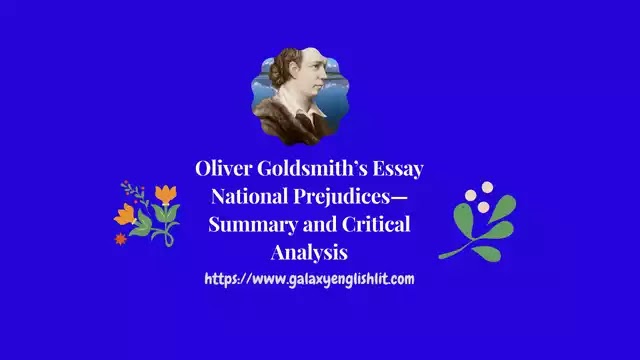Cheerfulness Lying in Many Adverse situations:
When the play begins, we find the boatswain fighting against the storm with great courage and fortitude and speaking the words of cheer to his sailors. The boatswain is of course not feeling either panicky or distressed by the storm which threatens to wreck the ship. He is seen instructing to his sailors in his effort to save the ship from getting wrecked and he is doing so without any fear in his heart. At the same time, it is noteworthy that his cheerfulness is of a sour or sullen kind. When approached by the distinguished passengers, he speaks to them most rudely, asking them not to interrupt him in his work and go back to their cabins. Thus, at the back of his mind, the feeling of uneasiness is there and cannot be denied. Then there are the passengers some of whom are certainly not scared by the storm. The king and his son are undoubtedly feeling somewhat afraid of the fury of the storm and have started to pray to God for showing mercy upon them. But the other passengers are not so frightened. Gonzalo seems to be the least affected by the storm and Antonio and Sebastian too remain unafraid. Gonzalo even makes jokes about the boatswain's rudeness towards him and the others.
 |
| Moral of Cheerfulness under Calamity in The Tempest by Shakespeare |
As for Antonio and Sebastian, they think that death is near and they get ready to die without any signs of fear or even nervousness. Then there is cheerfulness which Ferdinand and Miranda experience when they declare their love for each other. The scene of courtship between them is certainly full of joy and happiness. Ferdinand is undergoing the labour of piling up the logs, but he does not feel depressed or dejected by that labour because the maiden with whom he has fallen in love, is nearby and because she too has fallen in love with him. Then there is the feeling of cheerfulness when Prospero has forgiven all the evil doers and the preparations are being made for the voyage back home.
Superficial Cheerfulness of Gonzalo:
After the storm, when Alonso and his companions find themselves on a desolate island, Alonso is feeling most miserable because Ferdinand is believed to have perished in the sea during the storm. At this time, the old Gonzalo is seen in a normal mood of cheerfulness. Though he is also sad at the King's great loss, he tries to preserve his normal feelings by consoling him. But in other opinion, Gonzalo seems to be in cheerful mood because he has suffered no personal injury or loss. When Gonzalo finds himself a prisoner, along with the others, in the lime - grove, he too begins to feel miserable. In fact, he feels even more miserable than the others. When Gonzalo is welcomed heartily by Prospero, he (Gonzalo) again becomes cheerful.
Indescribable Misery and Suffering of Alonso:
Alonso is the man who suffers tremendous misery and suffering. When he firmly believes that he has lost his son in the fierceful storm, he is almost heart - broken. Words of comfort from Gonzalo and Francisco prove of no avail. In fact he feels irritated by the words of consolation spoken by these men. Alonso continues to feel disconsolate. Later, when the banquet is mysteriously laid before Alonso by the strange shapes and when, with the appearance of a harpy, the banquet disappears, Alonso is the person most affected by this baffling phenomenon. When the harpy denounces the three men of sin, of whom, Alonso is one, Alonso again is the man who feels more bewildered and dismayed than anybody else. Once again he is the man who feels most distressed, dejected and crestfallen when Prospero himself appears and reminds the three evil doers the crime which they had committed against him and his little daughter Miranda. Indeed, Alonso becomes a tragic figure. It is only when Alonso sees his son alive and happy in the company of a damsel that his grief comes to an end and he thinks himself a fortunate person.
Miranda's Feeling Uneasy and Ferdinand's Unhappiness:
Cheerfulness of Miranda and Ferdinand is not perfect in the beginning. This cheerfulness becomes perfect only when Prospero assures Ferdinand that he (Ferdinand) has passed the test and that he now deserves the hand of Miranda in marriage. But before that both Ferdinand and Miranda feel uncertain and uneasy. Miranda finds her father too harsh, towards Ferdinand who appears to her to be the very perfection of manhood. When she tries to speak to her father on Ferdinand's behalf, her father feels annoyed and snubs her. When Ferdinand refuses to comply with Prospero's orders, Ferdinand is rendered helpless and ineffective by Prospero's supernatural powers. Then Ferdinand feels unhappy because he has been subjected to a degrading kind of labour. It is true that the nearness of Miranda consoles him, but Ferdinand's unhappiness at the time cannot be denied. In fact Ferdinand had been feeling unhappy even before he met Miranda. He found himself all alone on an uninhabited island and he also thought that his father and his companions had become the victim of fierceful storm. At that time Ferdinand's condition was very miserable and pathetic.
Ariel's Suffering from the Torture in Sycorax's Confinement and His Present Slavery:
When Prospero expresses his satisfaction at Ariel's performance, Ariel asks for his freedom and here we are given a detailed account of Ariel's past sufferings. Prospero reminds Ariel of the witch Sycorax's savage treatment of him. Being a delicate spirit of the air, Ariel had refused to carry out the gross and earthy commands of Sycorax whereupon she imprisoned him in a cloven pine tree. There Ariel remained, howling in pain and agony for a number of years before Prospero was able to release him by his supernatural powers. Prospero's super- natural powers proved greater even than Sycorax's powers. Now Ariel remains under a commitment to serve Prospero for a number of years as the price of his release from the cloven tree. From beginning to the end Ariel is seen in the state of slavery. He gets the freedom when Prospero gives up his right from the island.
Caliban's Discontentment in the Service of Prospero:
Caliban says that originally he was the ruler of this island which he had inherited from his mother Sycorax. But when Prospero arrived the island, he (Prospero) stole the control of the island. He became Prospero's only subject doing all of his dirty work. In the beginning Prospero had been kind and generous to him, but with the passage of time, Prospero began to treat with him as a hard - working slave. And he was confined to a rock and was not allowed to roam over the island freely. Indeed it is his discontentment with his matter that he anyhow wants to get rid of him.
Villain's Cheerfulness but Not Serving Any Purpose:
Sebastian and Antonio are never seen in a sorrowful mood throughout the play. Nothing makes them upset. But it is also true that their cheerfulness cannot be the source of inspiration to us because they are confirmed villains. Both these men are insensitive and thick - skinned. Antonio exposes his ov a brother and his brother's little daughter to the dangers of the sea and while doing so, he expels all feelings of sympathy and compassion from his breast. On the island, Antonio continues to be a villain because here he instigates Sebastian to kill his brother Alonso who lies asleep. Sebastian promptly responds to Antonio's suggestion. There is no cause of feeling jealous if such villains feel cheerful. The cheerfulness of such villains does not have any positive response.
Prospero's Painful Experiences Related to His Past:
When Prospero gives Miranda an account of his past life, there is tragedy enough in it. Prospero's misfortunes overshadow the whole play. In fact the ways in which he and Miranda had been treated by Antonio and King Alonso is painful to us and may even draw tears from the eyes of sensitive readers. Even at the end, when Prospero has forgiven all his enemies, we find that Sebastian and Antonio have no signs of y regret or repentance over their actions of the past. The dukedom, which Prospero had lost as a result of Antonio's treachery, is certainly restored to him; but what Prospero must have gone through on the island during twelve years of his stay here as also the life of isolation which Miranda has led here, are certainly no cause for happiness.





